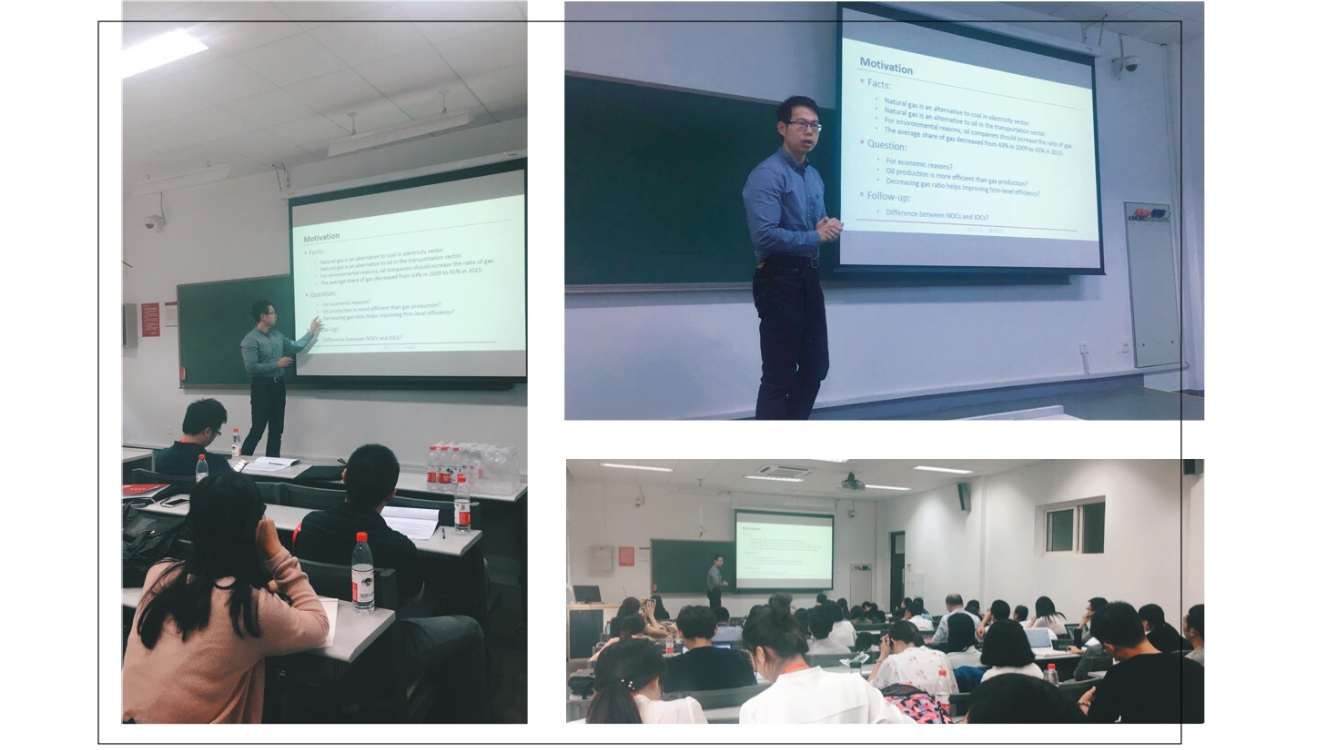继10月关于页岩革命的独著论文后,农业经济与管理系百人计划学者、中国农村发展研究院龚斌磊研究员另一篇独著论文Different Behaviors in Natural Gas Production between National and Private Oil Companies: Economics-Driven or Environment-Driven? (经济驱动还是环境驱动?国有和私营石油企业的天然气生产差异研究)被能源环境领域顶级学术期刊Energy Policy录用。Energy Policy是SCI/SSCI双检索期刊,在其所在的能源与燃料类(Energy &Fuels:19/92)、环境科学类(Environmental Sciences:33/229)和环境研究类(Environmental Studies:7/105)三个JCR类别中均位列Q1区,被浙大农经系认定为TOP期刊,2016年影响影子4.14,五年影响因子4.60。
石油和天然气是石油企业生产的主要产品。由于天然气比石油更加清洁环保,石油企业提高天然气生产比例,对减少温室气体排放、应对气候变化起到积极作用。然而,通过对2009-2015年全球54家大型石油公司的数据分析,该时段内平均天然气生产占比从43%下降到41%。因此本文希望实证检验这种行为是否是经济利益驱动的,即石油生产的效率是否高于天然气生产。此外,私营石油企业天然气占比从46%降低到42%,而国有石油企业天然气占比却从35%上升到38%。本文将研究这两种不同行为的驱动因素。
本文研究2009-2015年全球54家大型石油公司企业层面的生产效率。由于该时间段内石油行业经历了金融危机之后的复苏,又经历了2014年石油价格的下跌,企业效率变化趋势极为复杂。因此本文利用多种参数和半参数随机前沿分析方法并配合多种稳健性检验,旨在更加准确的度量这种非线性的变化趋势。研究结果发现,对于国有和私营石油企业,石油生产的效率均高于天然气生产。私营石油企业降低天然气比重的做法是经济和商业利益驱动的,国有石油企业提高天然气比重的做法是政治和环境因素驱动的。
基于以上研究,本文建议:1)政府应通过调节石油和天然气的税率,影响私营石油企业的生产决策,使其承担必要的社会和环境责任;2)政府应增加天然气产业的科研力度和资金支持、旨在提高其生产效率和竞争力;3)政府应该优化补贴的途径,避免不同政策造成的冲突。例如,国有企业在提高天然气占比保护环境的同时,应该减少对能源价格补贴。
本研究在2017年“第八届能源经济与管理学术年会暨第十一届中国能源资源开发利用战略学术研讨会”上进行了宣讲,得到与会学者的广泛认可与好评。
英文摘要:This paper investigates firm-level efficiency in the petroleum industry during the period 2009-2015. A Jackknife model averaging method and two stochastic frontier models are utilized to estimate the input-output relation more accurately. The derived efficiency is then decomposed to predict the effect of various efficiency determinants with an emphasis on gas ratio and ownership. A significantly negative effect of natural gas ratio (in production portfolio) on efficiency is found for both National Oil Companies (NOCs) and privately-owned International Oil Companies (IOCs). This finding implies that the decline in natural gas ratio for IOCs is economics-driven, and the incline in gas ratio for NOCs is environment-driven. Therefore, the environmental objective is the NOCs’ third non-commercial objective, alongside subsidizing below-market energy prices and offering excessive employment, as found in the literature. Governments may consider the transfer of subsidies from low energy prices to clean energy promotion, which leads to energy saving and emissions reduction.



